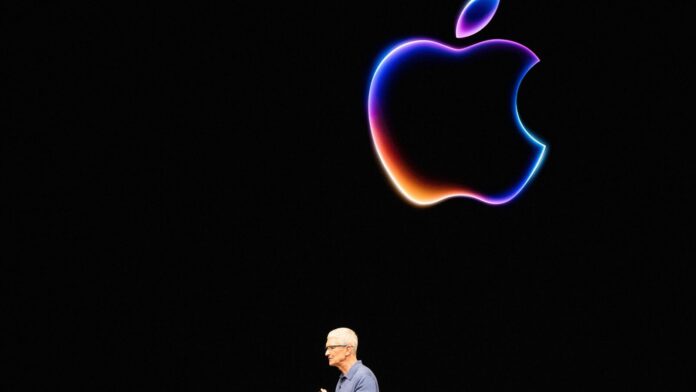“Recent developments in generative AI and large language models (LLMs) offer powerful capabilities. As we look to build in these new capabilities, we want to ensure that the outcome reflects our principles at the core of our products,” said Apple chief executive, Tim Cook, on the company’s AI move.
“It has to be powerful enough, intuitive, deeply integrated, and understand personal context. And, it has to be built with privacy from the ground-up. This goes beyond AI—it is personal intelligence, and this is the next big step for Apple.”
Craig Federighi, senior vice-president of software engineering at the company, said that Apple’s generative AI features will process data on-device and run narrow AI models to perform specific tasks. For bigger tasks, the company is building its own servers powered by its chips, qqa privacy-centric move that most industry experts welcomed.
“There are impressive chat tools that perform a vast array of tasks using world knowledge, but these know very little about you. With our platforms, Apple Intelligence draws on personal context to offer intelligence relevant for you. It protects privacy, and is deeply integrated into our platforms, and apps you use everyday,” Federighi further added.
Apple’s features will cater to a substantial base of users globally. Apple’s iPhones, iPad tablets, and Mac laptops and desktops account for over 1.5 billion users, according to market researcher Statista.
Features on offer will include on-device generation of texts and summaries across Apple’s own apps and third-party ones, image editing, including object removal from backgrounds, call recording with live transcription and summaries, contextually prioritized notifications, and more. On this note, personal context will also work across third-party apps.
To do this, Apple is using its own ‘small’ language models—Federighi said in a post-launch media roundtable that iPhones will use a 3-billion-parameter AI model for its generative tasks.
In the long run, the company will also leave users with the option to voluntarily use an on-cloud generative AI service that requires more recent data or more context. The latter will be offered in partnership with OpenAI, and Apple will use the former’s Generative Pre-trained Transformer (GPT)-4o multimodal AI model through the ChatGPT interface.
Federighi also confirmed that all services will remain free for Apple’s iPhone, iPad, and Mac users once they are eventually rolled out with the new-generation operating system’s stable public releases,which typically take place every September.
Privacy-centric AI integration
Apple is using privacy as its key selling point to differentiate its offerings. Federighi claimed that all personal data will be processed on-device, and “never” shared across cloud servers. However, it remains unclear how a user’s personal context may be shared across multiple devices belonging to a single user.
Industry stakeholders welcomed the move, underlining that Apple’s move was the expected next step of evolution in the generative AI domain—and could majorly boost enterprise adoption of generative AI driven by streamlining industrial best practices for AI privacy.
In September last year, Mint reported, citing Qualcomm SVP for product engineering Ziad Asghar, that local AI features running on SLMs are the way ahead to affordably commercialize generative AI. Most watchers of the AI evolution have underlined cost and privacy as the two key concerns of the technology.
Since then, in October last year, search giant Google launched its Pixel 8 series of smartphones with local data processing, including live translation of audio recordings and the ability to remove objects from photos at will.
Korean electronics conglomerate Samsung followed suit with its Galaxy S24 series running generative AI across similar features and applications. The latter, however, relied on cloud servers to power a number of its features, which included live summarization of voice recording.
Apple’s features also included ‘personal context’, which recognises personal user patterns and offers suggestions such as prioritizing notifications based on the most-used apps and the time of the day.
‘Image Playground’ offers image generation based on various themes and styles. Siri, Apple’s on-device digital assistant, also received a new interface and a text-based interface for generative AI queries. Siri also received a feature to recall queries in context.
Despite positive reactions from industry experts, investor sentiment was negative, with Apple shares dropping over 2% after the announcement.
3.6 Crore Indians visited in a single day choosing us as India’s undisputed platform for General Election Results. Explore the latest updates here!
Download The Mint News App to get Daily Market Updates & Live Business News.
More
Less
Published: 11 Jun 2024, 10:03 AM IST
#Apples #push #intensifies #Big #Tech #race #Gen #commercialization
